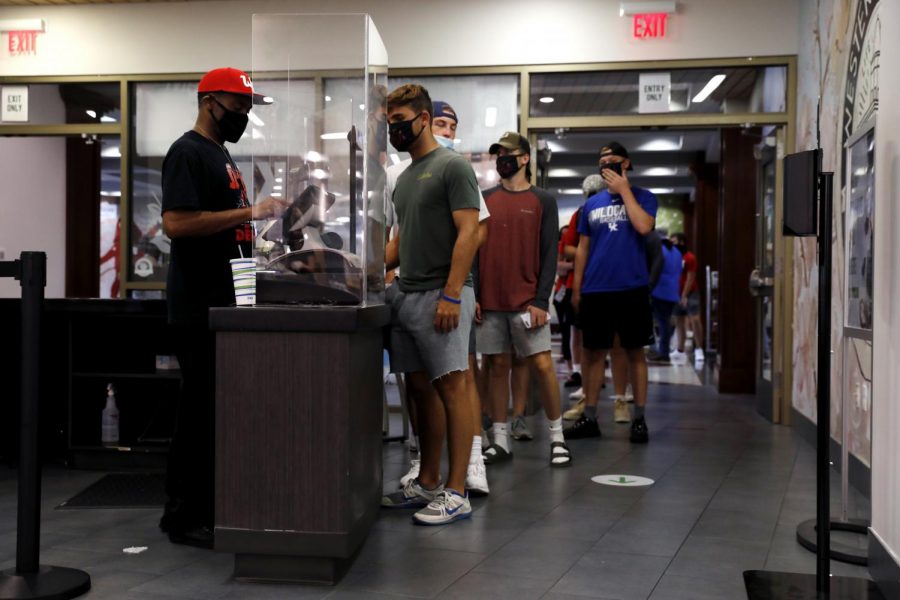OPINION: A look at dietary restrictions on campus
November 4, 2021
With Garrett now gone and The Commons delayed, students are navigating how to eat on campus with limited options.
Some of these students have dietary restrictions that significantly limit their food options, more so than their peers.
Tani Washington, a sophomore double majoring in History and Economics, shared her experience eating on campus as a vegetarian with a lactose deficiency.
Due to the lack of healthy, nutrient-filled food options, Washington subsequently shifted from being a vegan to a vegetarian to broaden her eating options at WKU.
“The only place that I could eat vegan on campus was Fresh, but even then, it was like me having to pick and choose how big of a meal I was gonna have that day because there weren’t a lot of options,” Washington said. “At some point, last semester, I just decided I’m going to go back to being a vegetarian.”
Washington touched on the accessibility of the food trucks as more places for students to grab food on campus that are relatively fast compared to DSU.
“I would say right now, the food trucks are a really big plus. I’m in and out within about 20 minutes max,” Washington said. “The wait times [at DSU] have been absolutely ridiculous this year. Places like Burrito Bowl, I’m not willing to stand in line for 35-40 minutes to get a burrito.”
Students shouldn’t have to change their diets to eat on WKU’s campus. Some students can’t change their diets because of life threatening allergies like celiac disease.
Hannah West, a junior majoring in speech language pathology and minoring in American Sign Language, expounds on what it’s like to have celiac disease and being lactose intolerant at WKU.
“My first month I got here, I lost 10 pounds because I couldn’t find anything to eat,” West said.
West realized she needed someone who knows the food options well and could help her navigate having celiac on campus, so she reached out to Cory Eakins, WKU’s dietitian.
“I talked to the dietitian last year, especially when I was having a really hard time eating food,” West said. “The variety seems to have gotten better, but I will say I am eating the same things at the same places – all very frequently.”
Both Washington and West shared advice for students attempting to find good food options for their dietary needs.
West proposes a possible alternative to meal plans for students with dietary restrictions.
“It would be nice if there was a separate meal plan available for people who really struggle with [dietary restrictions] because I feel like I’m paying for stuff I can’t eat,” West said.
Washington advises students who are grappling with eating on campus as vegan or vegetarian.
“Buy on-the-go snacks, if you can, from supermarkets and POD,” Washington said. “Don’t feel bad about not eating nutrient-dense food all the time.”
If students don’t have the food they need, it not only hurts them physically, but also mentally when interacting with their peers.
West’s final emphasis on the importance of eating options is that going to get food with your friends is a vital part of socializing on campus.
“Food is a very social thing,” West said.
This social interaction can be embarrassing or uncomfortable if students can’t eat anywhere that their friends want to. It can be a stressful situation for them.
Students shouldn’t feel burdened when trying to eat on campus by themselves or with their friends.
If you’re also struggling to find food options to fit in your specific diet, reach out to WKU’s dietitian Cory Eakins.
Commentary writer Rose Donnelly can be reached at [email protected]. Follow her on Twitter @RoseDonnelly_






















